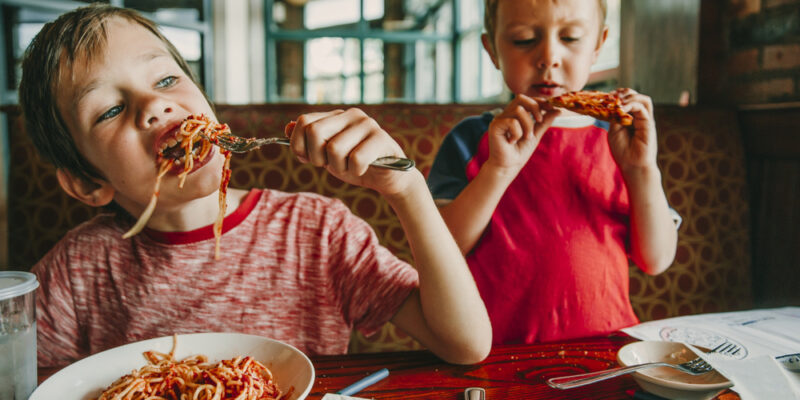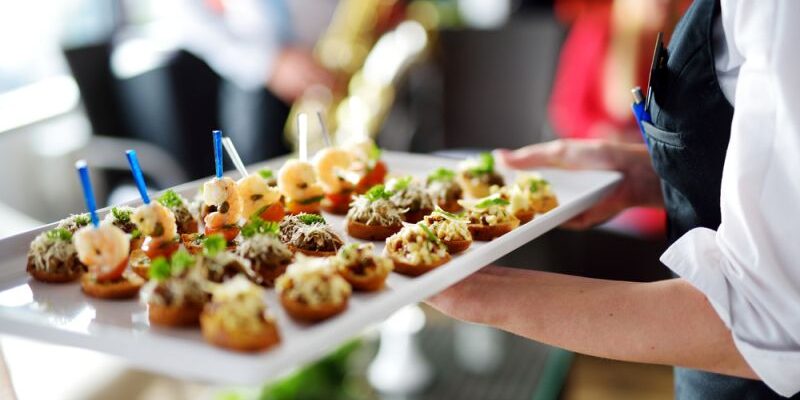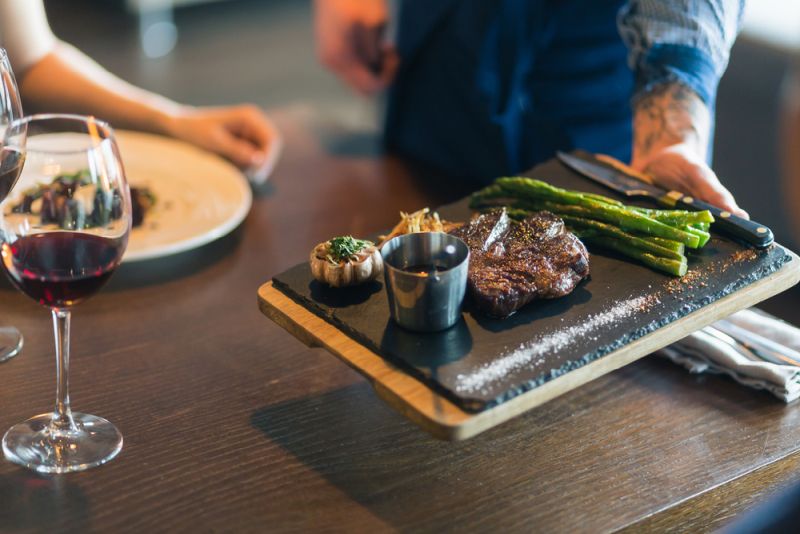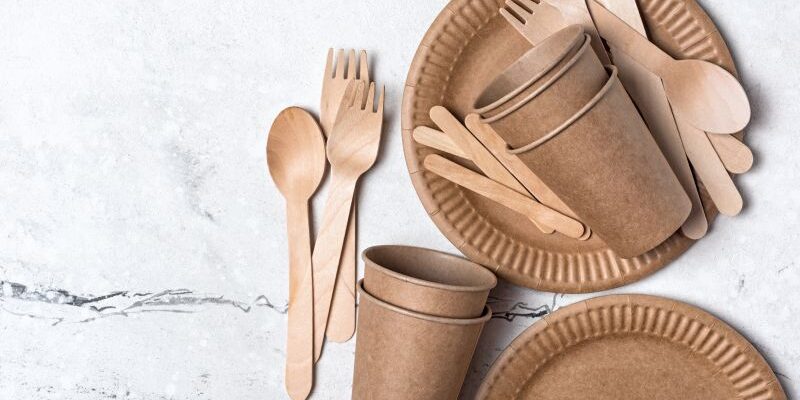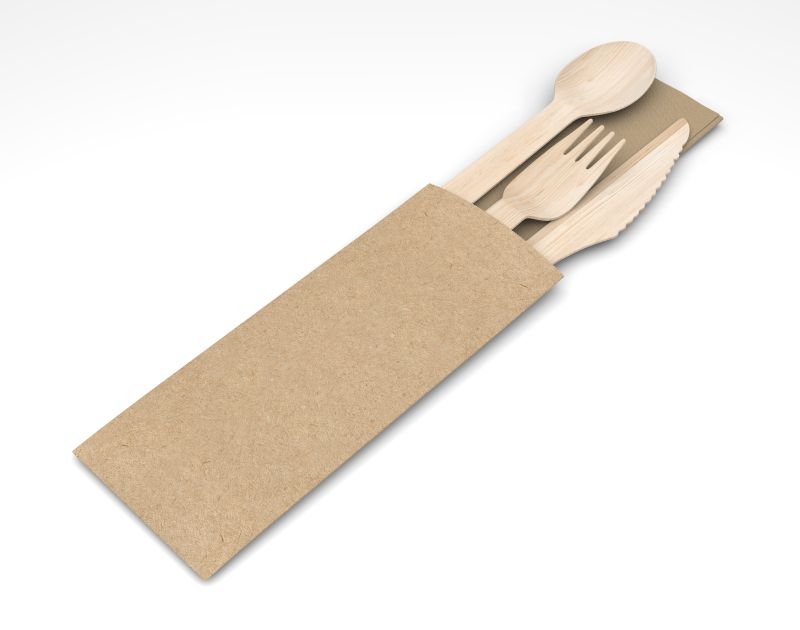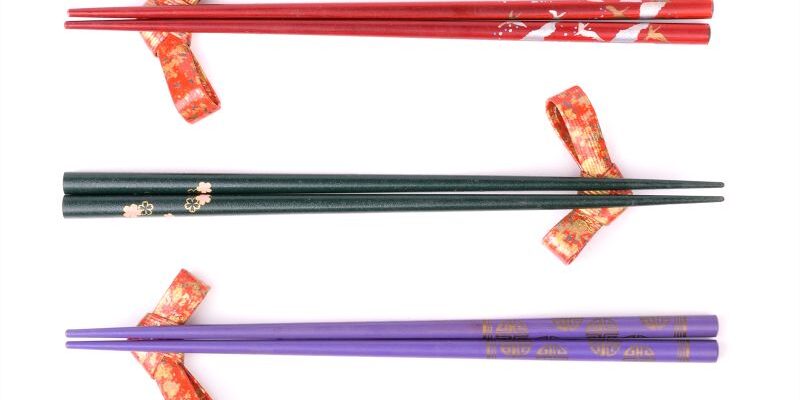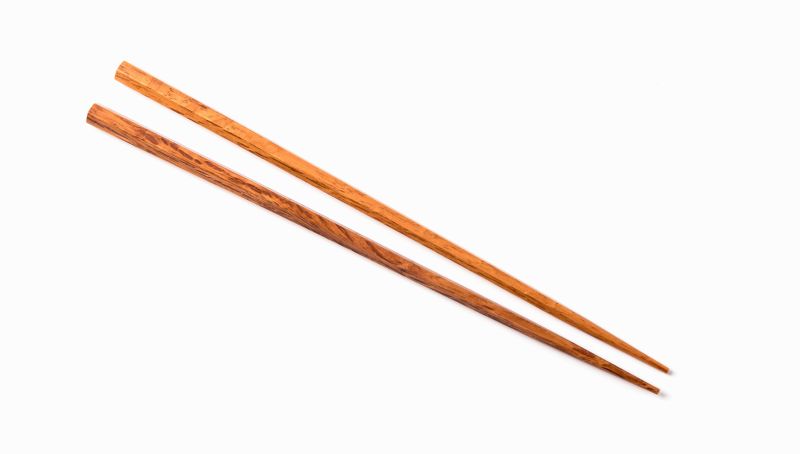Children are not born with manners; you provide lessons and guidance to help them learn how to show respect to others. When your kid learns to eat, it’s your role to ensure excellent behavior is displayed at the table. Teaching table manners to preschoolers is not difficult, but it does call for patience!
The manners you teach your young ones at the table will benefit them in other sectors of life too, such as social interactions and job opportunities. For example, some employers and business partners consider basic table etiquette a test of character. So don’t let your child lag in such a crucial developmental stage.
Even if you understand the basic table manners to pass to your preschooler, the way you teach will determine how well these lessons stick. You’ll have to go an extra step to repeat some lessons for most kids.
This article explores the top table manners to teach your preschooler and how to do so effectively.
Top Tables Manners To Teach Preschoolers
Children learn different manners at various stages of life, so you shouldn’t expect your kid to learn everything at once. Below are behaviors to teach your preschooler before, during, and after meals.
Wash Your Hands Before Every Meal
Hygiene is essential to keep your mini-me safe from bacteria and infections. Clean hands should always be a priority, even if you use a fork and knife for the meal.
Use a step or raised surface to ease accessibility if your child is too small to reach. You could also wash your hands alongside your child to ensure they follow the correct procedure.
Close Your Mouth When You Chew
Your preschooler shouldn’t expose chewed food at family dinners, school functions, or restaurants. So, teach your child that an open mouth could spew food to other people, which is disrespectful.
If your kid cannot master the art, you could cut the food into smaller pieces or teach your child to take smaller bites.
Help With Manageable Duties
Little hands still do a few tasks effectively! Your preschooler can clear a plate or carry the fruits to the table. For instance, don’t allow your child to eat and leave leftovers on the table.
Instead, teach your child when and where to clear plates after the meal. Starting your child off young with a few small chores develops a sense of diligence and responsibility.
Observe Napkin Skills
Don’t let your child use shirts or other clothes to wipe their hands or mouths. Instead, teach the proper use of napkins, including how they should place the napkin on their lap.
Don’t allow dirty napkins on the table since no one wants to look at a dirty napkin during meals. Then, have a designated place to keep the used napkin so your child won’t place dirty linen with the utensils.
Be Polite
The three magic words to teach preschoolers are please, thank you, and no thank you. Let your child know when to ask for items or turn down a request with the three magic words.
Also, appreciate everyone who has prepared and served the food. A simple “thank you for the meal” or “the food was good” are important acts of politeness that will go a long way in your child’s future endeavors!
Keep Screens Away
Don’t allow your kids to carry mobile phones, video games, tablets, etc., to the dining table. Most people view meal time as a space to chat and interact with family members and guests, and screens are a distraction (not to mention dirty!).
Switch off the TV and focus on the meal and the people at the table. Watching TV during meals also makes you eat more and enjoy less.
Don’t Leave the Table Unless Excused
Leave the table after everyone has eaten unless circumstances call for an earlier departure. For example, if your meal times are longer or you want to have conversations after the meal, teach your young one to request to leave early.
You shouldn’t have preschoolers stay at the table long, but you can let your child stay for a few minutes after the meal and then leave.
Don’t Criticize the Food
Picky eaters will likely voice their thoughts above foods they don’t like. Negative comments don’t always sit well with the cook and other people who love the food in question. If there are other kids at the table, they may develop a perception of the meal before trying it, or say they don’t like it too in order to fit in.
So, discourage negative comments and encourage your child to decline what they don’t like politely.
Don’t Stretch Your Hands Over Food
Your kid may want salt, ketchup, or other items across the table. Let your child know how to ask for help or pass objects to other people. Otherwise, you’ll get accidents when hot things spill over, or you may end up with some messy sleeves in the food.
Don’t Talk With Food in Your Mouth
Meaningful family conversations during meals are essential, but should only happen with appropriate table manners. Don’t allow your child to talk with food in the mouth, no matter how small the bite is.
Other than the disrespect and possibility to spew the food, there is an added choking risk.
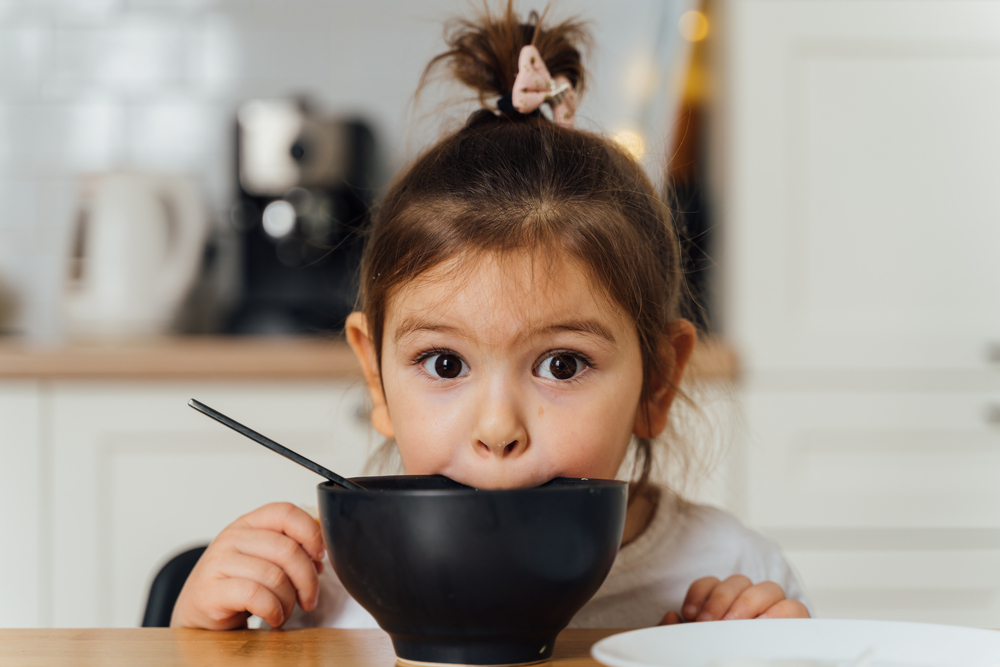
Tips To Teach Table Manners to Preschoolers
Now that you know the top table manners to teach, here are some tips to keep your lessons simple and effective.
Explain the Reason Behind the Rules
Tell your young one what you expect, especially when some table rules seem contradictory.
For instance, kids should always use utensils to eat and not bare hands. Nevertheless, you don’t expect to use a fork and knife on meals like pizza, raw carrots, and burgers.
So, let your preschooler understand what to eat and what not to eat with bare hands– and why! An explanation goes a long way.
Be Calm and Composed
Your kid won’t grasp every concept the first time, so give them room for mistakes. Gently remind your young one of something you taught before, but don’t scold your kid because of a one-time mistake.
For example, your child may forget to close their mouth when they chew, a behavior you can correct with a gentle reminder.
Teach One Lesson at a Time
You shouldn’t burden your kid with too many etiquette lessons at a time. Otherwise, your child will resent the classes or forget most lessons.
For the best outcome, have a list of lessons and teach one at a time as you advance. Since table manners start even before you sit at the table, teach your young one the best manners before, during, and after meals.
Deploy the Power of Repetition
Concepts stick more in your child’s mind when you repeat them from time to time. Unlike grown-ups who grasp basic concepts once, kids need reminders.
Try asking your child to remind you what you have taught after every few days. You can also come up with exciting schemes like watching a dinner session in a movie and letting your kid point out the good and bad behaviors.
Be a Role Model
You are your child’s first teacher, so let your baby see that you practice what you preach.
For instance, follow the correct procedure to wash hands with your kid. If you ask your child to scrub for twenty seconds, do the same. Since your kid might not know to estimate twenty seconds, you can ask that they sing a twenty-second song and then rinse their hands.
Practice the Rules
The more you practice with your kid, the more they understand non-ethical behavior.
First, have your child write down the rules or draw pictures to make the lessons more interesting. Then, recite the rules together once in a while before a meal or an eat-out. If you notice a slip, give a polite cue on what should change.
Discipline Bad Behavior
Whereas you shouldn’t expect a preschooler to master every bit of table manners, you should handle deliberate departures from proper behavior with appropriate discipline. Some practices take time, for example, eating with the mouth closed.
Give your child enough time to learn and practice, but devise a discipline strategy if your child always throws utensils around after meals.
Encourage and Appreciate Good Behavior
Acknowledgment and encouragement motivate your young one to stay on track. A simple clap and “you did great” shows your child you appreciate what they’ve done.
You might want to reward your child after a series of good table behaviors, too– whether it’s with a special dinner-date out, a small toy, or the option to pick the movie for the night.
Have Family Meals More Often
Many families no longer have a regular meal time, so young children don’t get enough opportunities to witness good table manners. Your kid learns better when the whole family is involved in the process.
Even if you can’t get the entire family to eat a meal together daily, a couple of meals every week will do!.
Conclusion
What you teach your child at a young age impacts their future social interactions and behaviors. Table manners don’t just end at home and events, but are also a part of some interviews.
Keep at it, and you’ll set your child up for a successful future.
